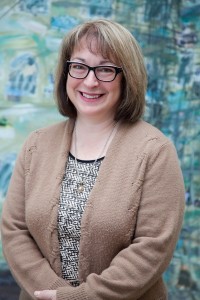Winnipeg’s Jewish Child and Family Services executive director Al Benarroch. (photo from Al Benarroch)
Although the problem of alcohol and substance abuse in the Jewish community is not new, it is often kept hidden and even ignored. A recent study by Winnipeg’s Jewish Child and Family Services (JCFS) hopes to expose the problem and dispel the stigma.
Led by executive director Al Benarroch, JCFS has increased its activity in raising awareness about addictions in the Jewish community over the past five-plus years. These efforts have included giving lectures, writing articles, building JCFS staff’s capacity to address addiction issues, hosting speakers, holding a conference on the topic, and launching and supporting the local chapter of JACS (Jewish Alcoholics, Chemically Dependent Persons and Significant Others), a Jewish 12-step recovery group.
“As a result of all this work, stigma has been reduced and our community has become more open to discuss this significant social issue,” said Benarroch. “Many more Jewish families and individuals are now willing to seek out support and assistance from JCFS.”
These initiatives were mainly funded through grants from the Jewish Foundation of Manitoba and private donors. In 2011, JCFS received core funding from the Jewish Federation of Winnipeg to hire a dedicated staff person to oversee the development of future addiction recovery services.
JCFS has created a standing strategic advisory group on addictions (SAGA), which has prioritized main areas of focus, including the expansion of services and resources for youth and families. The continuum of services could include education (workshops, etc.), the provision of counseling, the opening of a Jewish recovery resource centre, offering Jewish transitional sober housing for individuals leaving in-patient treatment and requiring extended time to foster lasting sobriety and, ultimately, Jewish in-patient recovery services.
With all of these goals in mind, JCFS was faced with a problem: little or no research had been conducted on the incidence and nuances of addiction and addiction recovery in Jewish communities.
“However, anecdotal information and reports from other communities and their agencies mirror the experiences of Winnipeg,” said Benarroch. “Specifically, that there are many Jewish individuals and families struggling with a wide array of addiction issues, and that these numbers and [the] intensity of problems likely mirror the general population.”
Nonetheless, JCFS set about to gather some hard data about addiction in its community. The recent study, Alcohol and Substance Use in the Jewish Community – A Pilot Study, was proposed as the first in a series of studies on this topic.
“This study was a partnership between JCFS and the University of Winnipeg’s (U of W) department of psychology (Dr. Gary Rockman),” said Benarroch. “One of Dr. Rockman’s former students, who was also a former summer student case aide at JCFS, Melanie Baruch, expressed an interest in this topic and in conducting research. Together, I, as representative from JCFS, Melanie and
Dr. Rockman developed a survey that was sent out to a random sample of existing JCFS clients.”
The pilot study on the incidence of addiction-related issues among existing JCFS clients has been completed and researchers have embarked on a second phase, which is exploring the narrative themes of the journey of Jews in recovery. For this phase, Canadian and American Jewish individuals in various stages of the addiction recovery process are being recruited and interviewed.
“It is hoped that this study will shed light on what sorts of educational resources and treatment resources our community can offer to be most effective,” Benarroch said.
A third phase also has been proposed. It would involve an attitudinal survey sent out to Jewish communities across Canada, the United States and abroad, exploring various attitudes that exist within Jewish communities with regard to addictions.
The pilot’s findings
Almost 20% of the respondents to the JCFS survey had used drugs other than those required for medical reasons. Nearly 15% of respondents could not get through the day without using drugs, yet only nine percent of respondents had sought help.

“This is an area we would like to explore further – what is preventing individuals from seeking help,” said Ivy Kopstein, the social worker JCFS hired to coordinate its addictions services. “Is it lack of information, stigma, lack of services?”
Respondents had used general, rather than specifically Jewish, services more often, yet 70% said they would attend JACS if they knew it existed.
“This leads us to believe that respondents may not be aware of Jewish-focused addiction recovery services,” said Kopstein.
Almost 24% of respondents reported having a family history of alcohol or drug abuse and 41% reported knowing someone currently struggling with addiction. There was no difference when it came to marital status or education in who reported drinking frequently or infrequently, which is consistent with findings in the general population.
“A common theme when doing research on this subject is the stigma and sensitivity to the problem of addiction,” said Kopstein. “This includes concerns over anonymity, even though confidentiality was clearly expressed at the outset. So, we will continue with education and awareness programs to address the stigma and encourage those affected to seek help.”
Currently, SAGA is working on programs for youth and parents, as well as developing other clinical and cultural services.
“We are hoping to learn what helps individuals enter and maintain recovery and how Jewish culture, community and spirituality enhances (or detracted from) each individual’s journey,” said Kopstein. “This information will provide a microscopic view into recovery, which will assist us in further planning Jewish recovery resources.”
Rebeca Kuropatwa is a Winnipeg freelance writer.

